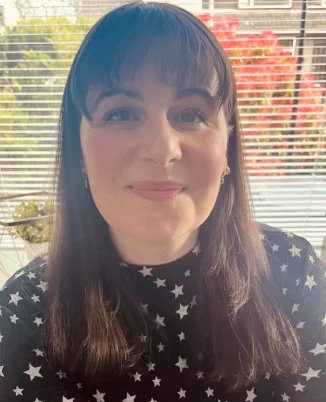Welcome to
Kirsty-Anne McEwan Psychotherapy
Isolation can occur when we experience our minds alone
Psychotherapy and Supervision in Aberdeen
Welcome, and thank you for visiting Kirsty-Anne McEwan Psychotherapy.
Who Am I?
I am an established UKCP Registered Integrative Psychotherapist with over 20 years of experience in the field of mental health. My approach is grounded in the belief that the therapeutic relationship is fundamental to fostering change. By creating a safe, empathetic, and supportive environment, I help clients explore their thoughts and feelings without judgment.
I draw on psychodynamic theory to help clients understand how their unconscious mind and past experiences shape their current behaviours and emotional patterns. By bringing these unconscious processes to the surface, clients can gain insights into their internal conflicts and work towards resolving them. This often involves examining early childhood experiences and significant relationships, as these are pivotal in forming one's psychological framework.
Incorporating attachment theory into my practice, I address how early attachment styles influence adult relationships and emotional well-being. I assist clients in recognizing maladaptive attachment patterns and developing healthier ways of connecting with others, which helps them improve their interpersonal relationships and achieve greater emotional resilience.
Throughout my career, I have worked with a diverse range of clients, from individuals dealing with anxiety, depression, and trauma to those seeking to enhance their self-awareness and personal development. My integrative approach allows me to tailor my therapeutic methods to the unique needs of each client, ensuring a personalized and effective treatment process.
My commitment to the transformative power of the therapeutic relationship, combined with my expertise in psychodynamic and attachment theories, has shaped my practice into a space of hope and healing. I am dedicated to helping individuals understand themselves more deeply and create lasting change in their lives.
My Qualifications
- Master of Science in Psychotherapy
- Diploma in Psychotherapy
- Post Graduate Diploma in Psychotherapeutic Studies
- Diploma in Psychotherapeutic Counselling
- BPC Accredited Mentalization-Based Therapist, Supervisor
Find out more:
Making the decision to see a therapist is a big step to take - but it can be a positive one. Please read on to find out more about how I could help you.
How can psychotherapy help?
Psychotherapy can be a powerful tool for improving mental health and overall well-being.
Here's how it helps:
- Emotional Support: I will provide a safe, confidential space to express and explore your feelings. Having a therapist who listens without judgment can offer significant emotional relief and support.
- Insight and Self-Awareness: Through therapy, you can gain deeper insights into your thoughts, emotions, and behaviours. Understanding the root causes of your issues, such as past experiences or unconscious patterns, helps in making positive changes.
- Behavioural Change: Therapy helps identify harmful behaviours and thought patterns. By recognizing these, you can work on changing them, leading to healthier and more productive ways of living.
- Improved Relationships: Understanding your attachment styles and interpersonal dynamics can enhance your relationships. Therapy can help you communicate better, set healthy boundaries, and develop more fulfilling connections with others.
- Trauma Healing: For those who have experienced trauma, psychotherapy can be a crucial part of the healing process. It provides a structured way to process and integrate traumatic experiences, reducing their impact on your present life.
- Personal Growth: Beyond addressing specific issues, therapy can be a journey of personal development. It helps you explore your values, goals, and desires, leading to greater self-fulfilment and purpose.
- Mental Health Management: For chronic mental health conditions, ongoing therapy can help manage symptoms, prevent relapses, and improve overall quality of life.
- Support During Transitions: Life transitions, such as divorce, job changes, or loss, can be particularly challenging. Therapy provides support and guidance during these times, helping you navigate changes more smoothly.
By addressing emotional and psychological issues, developing coping mechanisms, and fostering personal growth, psychotherapy can lead to a more balanced, fulfilling, and mentally healthy life.
What issues can psychotherapy help with?
People come to me for help a wide range of issues. Here are a few of the more common difficulties that can be supported through Psychotherapy.
Feelings of stress or anxiety
Panic attacks
Relationship problems
Grief, loss or bereavement
Problems with addiction
Trauma and post-traumatic stress
Abuse
Depression
Problems with confidence or self-esteem
Couples Therapy
Anger management
Issues relating to sexuality
Difficulties at work or in retirement
Problems with family or school life
Relationships
Female and Male Health difficulties
Sexual Dysfunction
Neurodiversity
Transitions
I also deliver MBT*
*Mentalization-Based Treatment (MBT)
Mentalization-Based Treatment (MBT) is a form of psychotherapy designed to help individuals understand and interpret their own and others' thoughts, feelings, and intentions. This process is known as "mentalization.".
Key Concepts of MBT:
- Mentalization: The ability to reflect upon and understand one's own mental states and those of others. This includes recognizing emotions, intentions, desires, and beliefs.
- Attachment Theory: MBT is rooted in attachment theory, emphasizing the importance of early relationships with caregivers in developing the capacity to mentalize.
- Developmental Focus: It looks at how disruptions in early attachment relationships can impact the ability to mentalize, leading to difficulties in emotional regulation and interpersonal relationships.
- Empathy and Understanding: MBT aims to improve the ability to empathize with others and understand different perspectives, which can enhance social functioning and reduce conflict.
How MBT Works:
- Therapeutic Relationship: The therapist provides a safe and supportive environment, fostering a secure attachment that allows the patient to explore their thoughts and feelings.
- Focus on the Present: While past experiences are considered, MBT primarily focuses on current thoughts, feelings, and relationships to improve mentalization in real-time.
- Exploration of Emotions: Therapists help patients identify and articulate their emotions, understanding how these emotions influence behaviour and relationships.
- Reflective Stance: Therapists adopt a curious, inquisitive attitude, encouraging patients to reflect on their own and others’ mental states without jumping to conclusions.
- Addressing Misunderstandings: Therapists and patients work together to identify and resolve misunderstandings or misinterpretations of social interactions.
Goals of MBT:
- Improve Emotional Regulation: By enhancing the ability to understand and manage emotions, patients can achieve greater emotional stability.
- Enhance Relationships: Better mentalization leads to improved communication, empathy, and understanding in relationships, reducing conflicts and misunderstandings.
- Increase Self-Awareness: Patients develop a clearer understanding of their own mental states, leading to greater self-awareness and self-control.
- Reduce Symptoms: MBT can help reduce symptoms of BPD and other disorders characterized by emotional dysregulation and interpersonal difficulties.
MBT is typically delivered in individual and group settings, often over an extended period to allow for the gradual development of mentalizing abilities. It has been shown to be effective in improving emotional stability, reducing self-destructive behaviours, and enhancing the overall quality of life for individuals struggling with mentalizing difficulties. .
Psychotherapy Supervision
I offer MBT (Mentalization-Based Treatment) supervision, which is a critical component in the training and ongoing development of therapists practising MBT. Supervision in MBT involves a structured process where experienced MBT supervisors guide therapists in their clinical work, ensuring adherence to the MBT model and enhancing their therapeutic skills.
I also offer psychotherapists and counsellors a supervsion space, for individuals, groups and organisations.
Inclusivity
In my practice, I am deeply committed to offering inclusive psychotherapy that respects and honours the diverse identities and experiences of each of my clients. I strive to create a welcoming and supportive environment where everyone feels seen, heard, and valued, regardless of their race, ethnicity, gender identity, sexual orientation, religion, socioeconomic status, or ability.
My approach to therapy is grounded in cultural humility and sensitivity, recognizing the unique challenges and strengths that each individual brings to the therapeutic process. I tailor my methods to meet your specific needs, ensuring that my interventions are relevant and respectful of your personal and cultural context.
Get in touch
Feel free to contact me if you have any questions about how psychotherapy works, or to arrange an initial assessment appointment. This enables us to discuss the reasons you are thinking of coming to therapist, whether it could be helpful for you and whether I am the right therapist to help. You can also call me on 07411 276322 if you would prefer to leave a message or speak to me first.
Sessions last for 50 minutes. I offer face-to-face sessions in Aberdeen and have limited capacity for online appointments.
Fees are £80 per session, for individuals and couples. BUPA and WPA Provider.
Fees are revised annually.
48 hour cancellation fee.
Please discuss any financial hardship, as this should not disqualify you from seeking help. An invoice can be provided if required.
Address: 7 Queens Gardens, Aberdeen AB15 4YD
Please enquire for MBT or Psychotherapy Supervision.
© Kirsty-Anne McEwan Psychotherapy
powered by WebHealer

